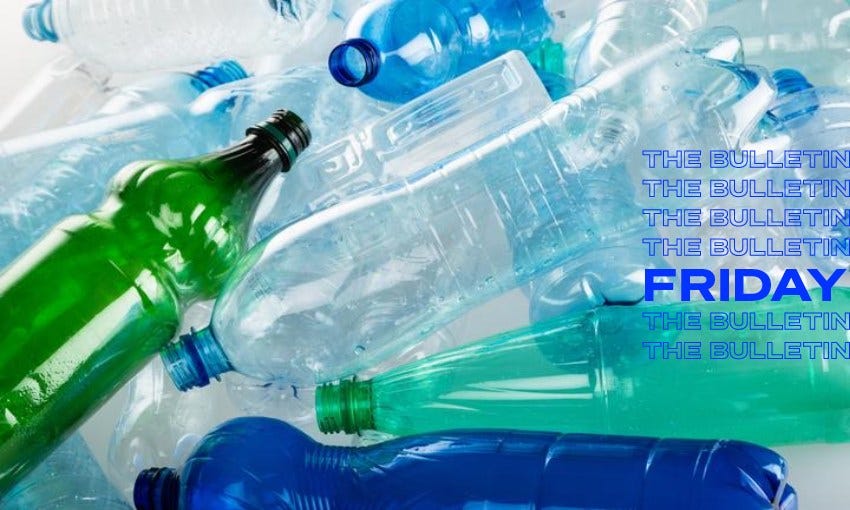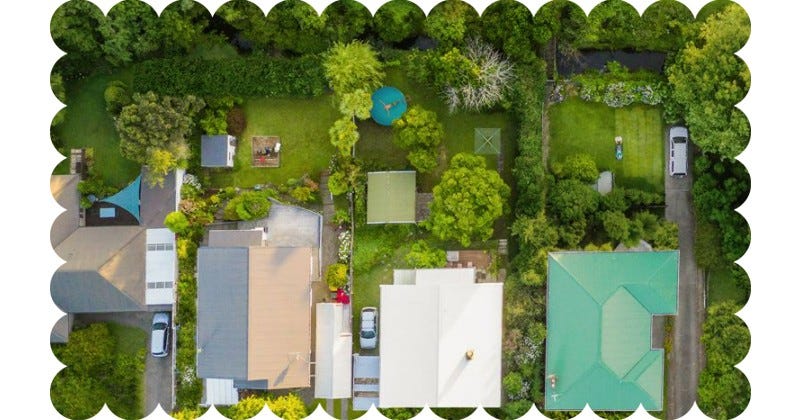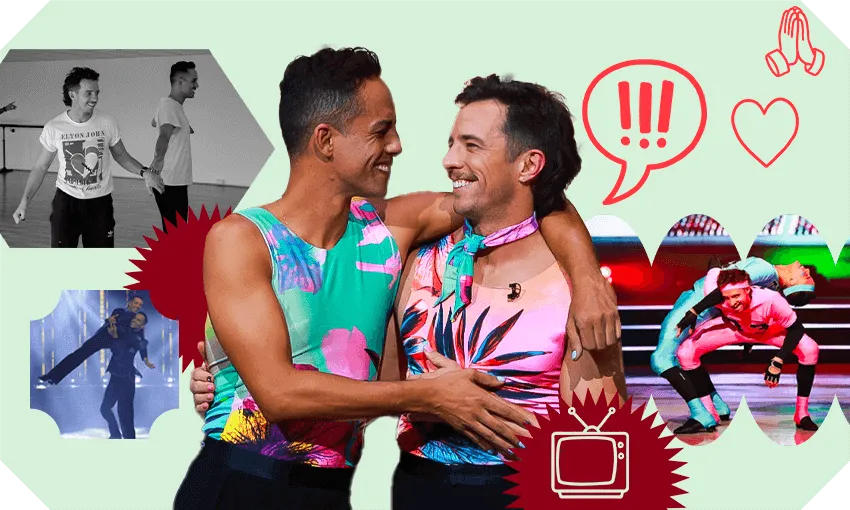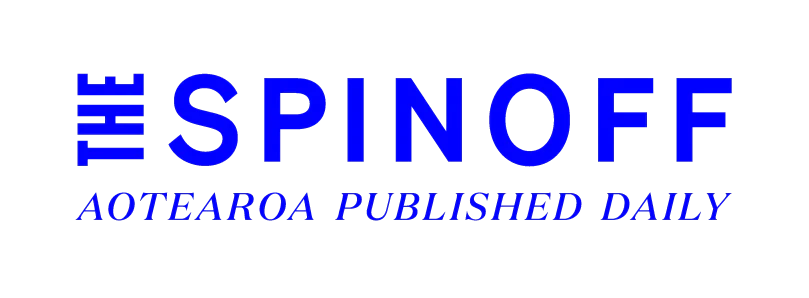Is recycling rubbish?
A government recycling plan is out for consultation. Will it be transformational?
Mōrena and welcome to The Bulletin for Friday, May 6, by Anna Rawhiti-Connell. Presented in partnership with Z Energy.
In today’s edition: m. bovis almost eradicated; fall-out over sexist, racist comments; cycling plan approved; but first, the plan to transform recycling.
Drink-container return scheme part of recycling plan (Photo: RNZ/123rf)
More transformative for recyclers than planet
In March, the ministry for the environment published a draft Transforming Recycling plan. The submission deadline was originally this Sunday but is now May 22. The plan could be transformative for recyclers – because we’re actually a bit rubbish at it. In fairness, this is probably because many of us find recycling confusing. This story on compostable packaging is a perfect example. New Zealand households incorrectly dispose of 178,000 tonnes at the kerbside each year (we put recyclables in the rubbish and vice versa). But will the new plan be transformational for the planet? It’s a fraught subject and critics of the plan say it doesn’t go far enough.
What’s in the plan?
The draft plan outlines three areas of change. First, improved kerbside recycling and the introduction of kerbside food scraps bins. This will hopefully standardise recycling practices around the country and remove confusion. There’s a bit of a “back to the future” drink-container return incentive scheme but this has a carve-out for dairy products. And there’s a plan to get businesses separating food scraps from general waste. Food waste that goes to landfills releases methane, a powerful greenhouse gas, as it decomposes.
Recycling isn’t quite the planetary saviour we think it is
Recycling creates a sense of agency – we feel like we’re doing our bit. When asked in a recent Energy Efficiency and Conservation Authority (EECA) survey “Which of the following actions do you take in order to reduce your climate change impact?”, 84% of people said recycling. That’s one of the problems though. We conflate recycling with tackling climate change. Its impact on climate change is much lower than, for example, all of us driving petrol cars less. It’s also not really doing the job most of us think it is, especially when it comes to plastic. It places a burden on end-users and we ship a lot of it offshore. I actually looked into it for North and South recently. It started as “What’s going on with recycling?” and turned into “Oh no, plastic recycling is a scam”.
Is recycling a stepping stone to doing more?
There is possibly another way to look at it though, that could add some optimism to the equation. Stuff’s climate change editor Eloise Gibson writes that there's a theory emerging from the EECA data that recycling is a gateway to taking further action. If you take one action that might be easy, you may take another that could be more impactful in reducing emissions. Perhaps, at the very least, standardising recycling and food scraps collection practices will make things less confusing for tidy Kiwis and may make us more inclined to take further steps that require a bigger change of habit.
A message from our creative director, Toby Morris:
Here at The Spinoff we’re proud to be a bit different. In the way we approach our journalism, in our tone, in the things we’re thinking about, all the way through to our design and our videos and our podcasts, we’d like to think we’re doing things and trying things in a way that no other New Zealand media organisations would. And it’s our beloved members that let us do that - both through their financial support, and the encouragement of their engagement: they’re readers who care like we care, who are also interested in seeing things done in a slightly different way. If you like what we’re doing and want to see more of it, have a think about joining up, and help The Spinoff be The Spinoff. Join today!
M. bovis nearly eradicated
In another pre-budget announcement, the prime minister and biosecurity minister Damien O'Connor (last seen together in Japan with the swaying kiwifruit, who are back in a new Zespri ad), visited a milk testing lab in the Waikato yesterday to announce a $42.9 million investment in biosecurity. They also marked a milestone in the four-year effort to eradicate Mycoplasma bovis, or M. bovis. M. bovis affects cattle and was first discovered here in 2017. As Farmer’s Weekly reports, it has so far cost $220.3 million in compensation claims and required 176,325 cattle to be culled, but there is only one property in New Zealand still infected with it.
Investment companies place DGL on exemption list
Madeleine Chapman wrote about the comments Simon Henry made during an NBR interview on Wednesday. Henry is the CEO and founder of chemicals company, DGL. He described Nadia Lim, one of the founders of My Food Bag as “Eurasian fluff”. Yesterday, Kiwi Wealth chief executive Rhiannon McKinnon said the KiwiSaver fund was in the process of adding DGL to its exclusions list. Sam Stubbs, managing director of Simplicity, said it would blacklist DGL until Henry had retracted the comments and “made amends”. Cecilia Robinson has written for NZ Herald (paywalled) about why things are still not OK for women in business.
Auckland cycling plan approved
Auckland council discussed the plan for three hours yesterday. As Todd Niall reports for Stuff, their approval was not technically needed. Auckland Transport has the budget locked in as part of the Regional Land Transport Plan. Endorsement was sought as a courtesy. The $2bn (which amounts to about 1% of the planned spend up to 2031) also includes a $306m package that was approved in 2019. 13 councillors endorsed the plan, including outgoing mayor Phil Goff. Seven councillors abstained. The plan will go some way to meeting the targets set by the council to reduce carbon emissions. That plan was endorsed by all councillors.
There has to be a better way to get on the property ladder than buying 50 years ago. With the prospect of owning a home, a mere dream for so many, the option to Co-own might be the solution people are looking for. Co-own lets you team up with friends and whānau to buy a home. Taking the first step towards owning your own home can be a long, scary prospect, but Co-own could make it feasible for you sooner than you think. To find out if Co-own would work for you, visit the Kiwibank website. (Sponsored)
Heardle for New Zealand music
It’s New Zealand Music Month and musician James Mac has developed a version of Heardle that uses only local music. Heardle is the auditory cousin of viral word game, Wordle, which was eventually bought by the New York Times from the man who developed it for his girlfriend. On Heardle, you can listen to the beginning of a song and guess what it is. I don’t play Wordle. I’ve tried, it makes me too angry (it’s me, not the game), but I had a crack at this Heardle. I got today’s in one second so am already a huge fan.
Got some feedback about The Bulletin, or anything in the news? Get in touch with me at thebulletin@thespinoff.co.nz
Eli Matthewson writes a letter to his Dancing With the Stars partner Jonny Williams; Ashleigh Young pays tribute to the greatest New Zealand tweet; Josie Adams finds out why all NFTs look the same (bad, ugly); Naomii Seah explains how the different Covid tests work and why some are more accurate than others; Jules Older pens an appreciation of a father and son whose work helped change Aotearoa.
Cricket tragic meets cricket stats whizz.
Self-confessed cricket tragic, 1News sport reporter Dewi Preece, talked to Ric Finlay. Finlay is a former Australian maths teacher who focused his stats skills on compiling a history of cricket in New Zealand. numbers he says are the game’s true art form. He has a full set of Wisden cricket and NZ Cricket almanacs and Preece’s reverence towards this collection is palpable in his report. Finlay is one of the world’s leading cricket statisticians and travels with the ABC’s cricket commentary team over summer.
















